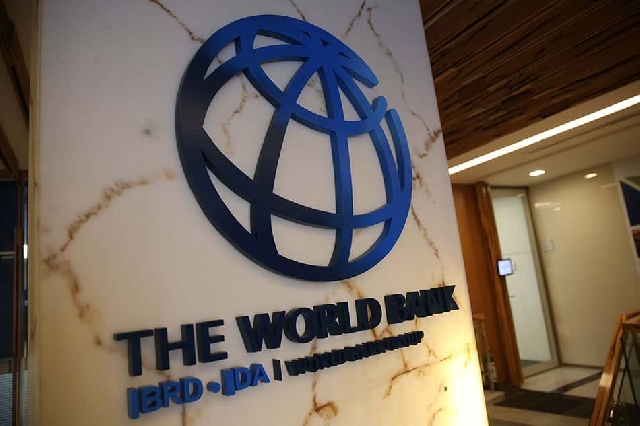WB: Ghana’s 6.8% 2020 growth forecast Africa’s 3rd-fastest
 World Bank
World Bank
The World Bank is projecting an economic growth of 6.8% for Ghana in 2020, according to its January 2020 Global Economic prospects Report.
This is against the 7.5% forecast by the International Monetary Fund for this year.
However, the bank said growth will fall to 5.2% and 4.6% in 2021 and 2022, respectively.
The 6.8% growth rate, according to the World Bank, would make Ghana the joint 3rd-fastest growing economy among 42 sub-Saharan Africa countries.
Rwanda will become the fastest-growing economy in sub-Saharan Africa with a Gross Domestic Product of 8.1% this year, followed by Ivory Coast with a 7% growth rate and Senegal, which is joint 3rd with Ghana, with a growth rate of 6.8%.
The Bretton Wood institution had earlier forecast an economic growth of 7.6% for Ghana in 2019 but later revised it to 7.0%.
However, from the recent figures of the Ghana Statistical Service where quarter three GDP was estimated at 5.6%, it looks impossible for the growth rate forecast to be realised.
The agriculture sector growth of 5.9% contributed significantly to the growth rate though the industry and services sectors also expanded by 5.7% simultaneously.
The World Bank’s latest report also indicated that regional growth is expected to pick up to 2.9% in 2020, assuming investor confidence improves in some large economies, energy bottlenecks ease, a pickup in oil production contributes to recovery in oil exporters and robust growth continues among agricultural commodity exporters.
“The forecast is weaker than previously expected, reflecting softer demand from key trading partners, lower commodity prices, and adverse domestic developments in several countries”, it said.
In South Africa, growth is expected to pick up to 0.9%, assuming the new administration’s reform agenda gathers pace, policy uncertainty wanes, and investment gradually recovers.
Growth in Nigeria is also expected to edge up to 2.1% as the macroeconomic framework is not conducive to confidence.
Growth in Angola is anticipated to accelerate to 1.5%, assuming that ongoing reforms provide greater macroeconomic stability, improve the business environment, and bolster private investment.
In the West African Economic and Monetary Union, growth is expected to hold steady at 6.4%.
In Kenya, growth is seen edging up to 6%.
Source: classfmonline.com
Trending Business

Muntaka Entrepreneurship Hub trains over 100 women in Asawase
14:16
Ghana Gold Board rakes in over $10bn ahead of target
09:56
GEXIM faces GHS1.5bn credit exposure as NPLs near 30% — CEO
09:36
Six Degrees delivers immersive experiential production at Kweku Smoke’s revival concert
10:37
GIPC highlights govt’s commitment to retail sector transformation at GUTA conference
03:01
Lower-Volta Small-Scale Miners & Farmers to host international livestock market
00:43
Nigeria's commercial dispute involving Ghanaian firm raises bilateral trade concerns-UK Certified Customer Communication expert warns
21:31
GoldBod Jewellery, GTA launches December homecoming promotion for diaspora visitors
17:15
Global cocoa prices soared, but Ghanaian farmers gained little – Randy Abbey
15:40
GIPC CEO joins Vice President to open new sanitary pad production line
09:23



